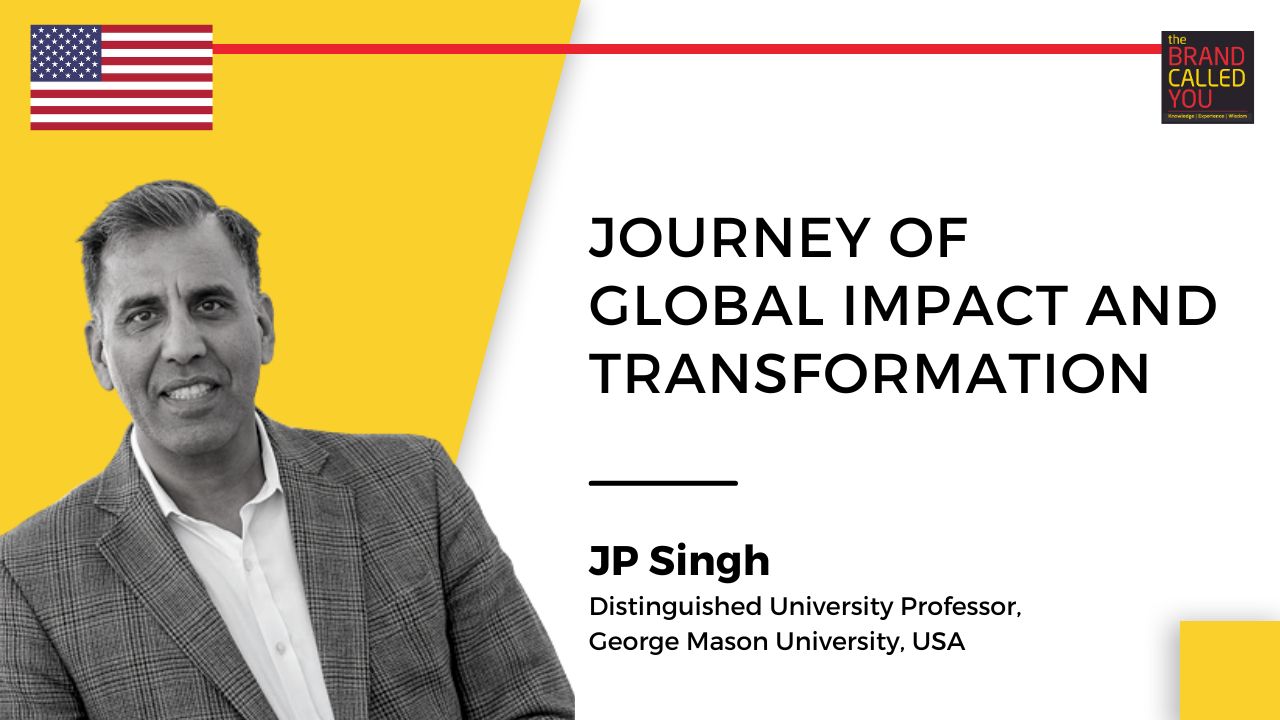JP Singh | Distinguished University Professor, George Mason University, USA
- JP Singh is a distinguished professor at George Mason University.
- He is the co-director of the Center for Advancing Human-Machine Partnership.
Podcast
Podcast: Play in new window | Download
Follow TBCY RSS
Overview
In this conversation, we have the privilege of speaking with an accomplished individual, JP Singh, who has made significant contributions to academia, global organizations, and the advancement of human-machine partnerships. Driven by a passion for creative problem-solving and a deep understanding of political economy, Professor Singh has embarked on a remarkable career that has spanned regional, national, and international spheres. Through his insights, we gain a deeper understanding of the complexities of global development and the potential for technology to create a brighter future for all.
[00:15] – About JP Singh
- JP Singh is a distinguished professor at George Mason University.
- He is the co-director of the Center for Advancing Human-Machine Partnership.
- Professor Singh has written 10 books and over 100 articles.
- He has advised international organizations such as UNESCO, the World Bank, and the World Trade Organization.
[19:33] – Do you think there is going to be a realization of India’s rich history?
- It is about rediscovery.
- Culture includes these symbols, values, artifacts that make us think of who we are.
- Sometimes, we arrest them in static sort of imaginary, that there is something very static about culture.
- But cultures are really malleable.
- Cultures take on global influences, and change.
- Strangers bring in ideas to a civilization that were not there, and they grow over time.
- Indian culture has lots of influences that came from the 20th century onwards.
- Cultures, though take on local character, but they also have these international dimensions.
[34:31] – What do you hope to achieve through the Minerva program?
- It was a way for the US’s Department of Defense to bring in social scientists to think about broad security questions.
- It was a way of engaging the social scientists with more technical teams, that I had been traditionally involved in DOD.
- In the beginning, there was a slight reticence on the part of social scientists to collaborate with the Department of Defense.
- We have a natural language processing person or machine learning person along with graduate students who are receiving this training.
- Our idea was to look at the determinants of these national AI infrastructures.
- OECD has a repository of countries that have announced national level AI policies, oftentimes as documents that have come about from these countries.
- These documents also serve as international strategies.
RESOURCES:
You can connect with JP Singh: LinkedIn
Enjoy this podcast?
If you learned new insights about the approaches of AI infrastructures of the countries, subscribe and share it with friends!
Love to give us 5 stars? ⭐⭐⭐⭐⭐ If you do, we’d love a review from you. Help us reach more people to keep them in the know as we talk to leaders, high achievers, and thought leaders from diverse backgrounds and nationalities. Excellence can come from anywhere; stay in the know, and hear from emergent high achievers and gurus.
Stay updated with what’s shaping the world today through the latest The Brand Called You Podcast episode. Follow us on iTunes, Spotify, and Anchor.fm.
You can find us at:
Website: www.tbcy.in
Instagram: http://bit.ly/3HO7N06
Facebook:http://bit.ly/3YzJOaD
Twitter: http://bit.ly/3wMBOXK
LinkedIn: https://www.linkedin.com/company/tbcy/
YouTube: http://bit.ly/3jmBqfq
Chingari: https://chingari.io/tbcypodcast
Josh: http://bit.ly/3WWP0nB
Thanks for listening!
Profile
- JP Singh is a distinguished professor at George Mason University.
- He is the co-director of the Center for Advancing Human-Machine Partnership.
- Professor Singh has written 10 books and over 100 articles.
- He has advised international organizations such as UNESCO, the World Bank, and the World Trade Organization.


